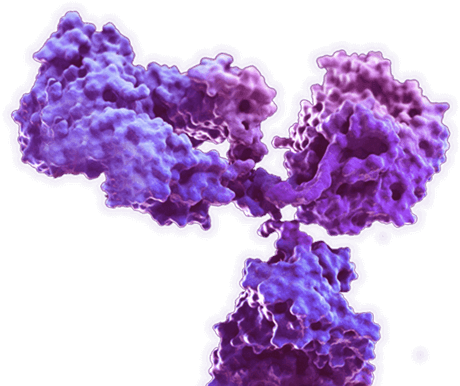AibGenesis™ Mouse Anti-Arabidopsis AT3G28710 Antibody (CBMOAB-0018FYC)
Cat: CBMOAB-0018FYC

Certificate of Analysis Lookup
To download a Certificate of Analysis, please enter a lot number in the search box below. Note: Certificate of Analysis not available for kit components.
Lot Number
To download a Certificate of Analysis, please enter a lot number in the search box below. Note: Certificate of Analysis not available for kit components.
Lot Number
| Size: | |
| Conjugate: | |
| Inquiry |
- Specifications
- Application Information
- Target
- Reference
Specifications
| Host species | Mouse (Mus musculus) |
| Species Reactivity | A. thaliana (Arabidopsis thaliana) |
| Clone | MO0018FC |
| Specificity | This antibody binds to Arabidopsis AT3G28710. |
| Format | Liquid or Lyophilized |
| Storage | Store at 4°C: short-term (1-2weeks) Store at -20°C: long-term and future use |
| Purity | > 90% was determined by SDS-PAGE |
| Purification | Purified with Protein A or G affinity chromatography |
Application Information
| Application | WB, ELISA |
| Application Notes | ELISA: 1:1000-1:3000 Other applications are to be developed. The optimal dilution should be determined by the end user. |
Target
| Introduction | Subunit of the integral membrane V0 complex of vacuolar ATPase. Vacuolar ATPase is responsible for acidifying a variety of intracellular compartments in eukaryotic cells, thus providing most of the energy required for transport processes in the vacuolar system. (From uniprot, under CC BY 4.0) |
| Product Overview | Mouse Anti-Arabidopsis AT3G28710 (clone MO0018FC) Antibody (CBMOAB-0018FYC) is a mouse antibody against AT3G28710. It can be used for AT3G28710 detection in Western Blot, Enzyme-Linked Immunosorbent Assay. |
| Alternative Names | AT3g28710; Putative adenosine triphosphatase; At3g28710 At3g28710/MZN14_20 |
| UniProt ID | Q9FE04 |
| Protein Refseq | The length of the protein is 351 amino acids long. The sequence is show below: MYGFEALTFNIHGGYLEAIVRGHRAGLLTTADYNNLCQCENLDDIKMHLSATKYGSYLQNEPSPLHTTTIVEKCTLKLVDDYKHMLCQATEPMSTFLEYIRYGHMIDNVVLIVTGTLHERDVQELIEKCHPLGMFDSIATLAVAQNMRELYRLVLVDTPLAPYFSECLTSEDLDDINIEIMRNTLYKAYLEDFYKFCQKLGGATAEIMSDLLAFEADRRAVNITINSIGTELTREDRKKLYSNFGLLYPYGHEELAICEDIDQVRGVMEKYPPYQAIFSKMSYGESQMLDKAFYEEEVRRLCLAFEQQFHYAVFFAYMRLREQEIRNLMWISECVAQNQKSRIHDSVVYMF. |
Reference
| Reference | Kalladan, R., Lasky, J. R., Chang, T. Z., Sharma, S., Juenger, T. E., & Verslues, P. E. (2017). Natural variation identifies genes affecting drought-induced abscisic acid accumulation in Arabidopsis thaliana. Proceedings of the National Academy of Sciences, 114(43), 11536-11541. |
For Research Use Only | Not For Clinical Use.
Online Inquiry


